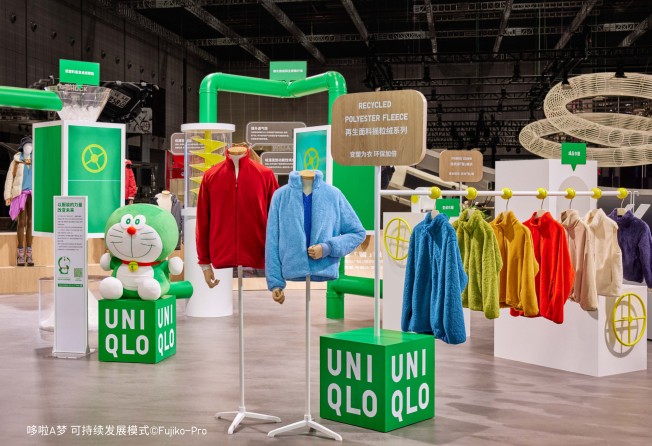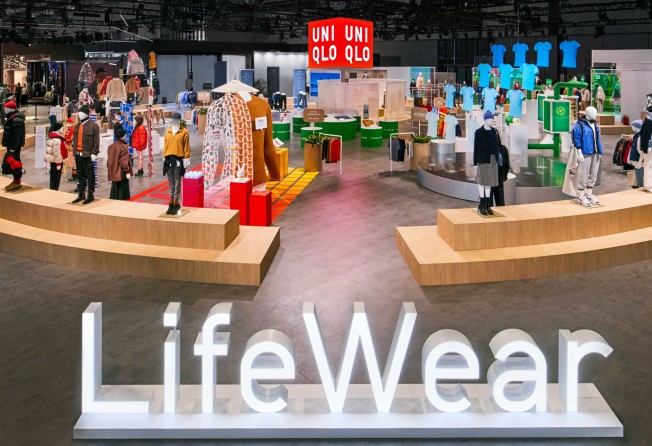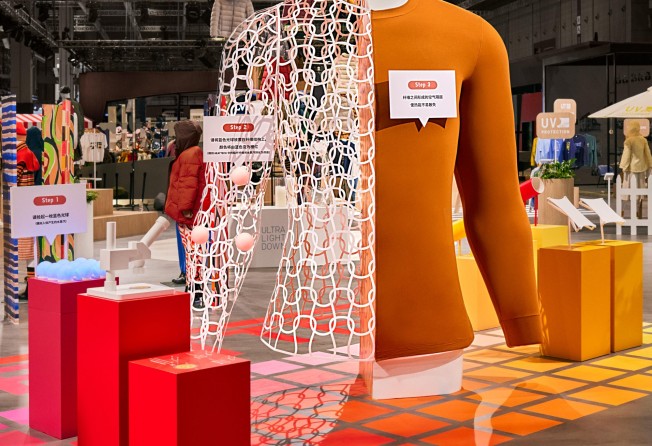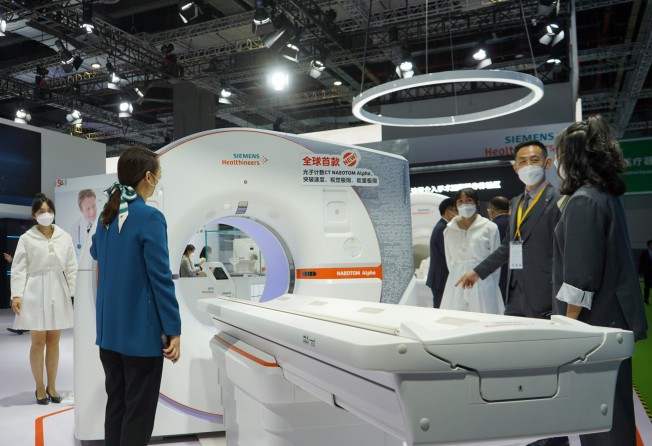
Japan’s Uniqlo highlights sustainability at Shanghai trade expo, but not all visitors buy into the idea of green living
- While sustainability seems to be the predominant theme at the China International Import Expo in Shanghai, not everyone is on board with the idea of green living
- The concept of sustainable living to take hold at the consumer level will be a long and gradual process, founder of impact investing advisory firm says

Sustainability seems to be the predominant theme at the China International Import Expo (CIIE) in Shanghai, with companies taking part echoing Chinese President Xi Jinping’s pledge to reach carbon neutrality by 2060.
But for some visitors sustainability does not play an important role in their product purchases.
Multinational corporations such as Uniqlo, McDonald’s, Thyssenkrupp and Siemens have made sustainable living and green products a key focus at this year’s expo.
The Japanese apparel retailer Uniqlo has attracted a lot of attention from visitors who stop to appreciate the brand’s sustainability-themed 1,000 square metre booth divided into three zones – technology, fashion and quality – and take pictures with its sustainability ambassador, the Japanese cartoon character Doraemon.

Uniqlo showcased its latest fleece collection with fabric made from 100 per cent recycled polyester sourced from plastic bottles, alongside its BlueCycle jeans collection that uses 95 per cent less water to produce. It has also set up a 2.5-metre tall installation of its signature thermal wear, which according to the company, can help “counter energy shortage” and sold one every second in China last winter.
“I don’t know much about sustainability,” said Julia Tan, a human resources professional. “I actually have some concerns about wearing recyclable materials.”
Another visitor, a professional in the beauty industry, noticed Uniqlo’s sustainability efforts from previous years but said sustainability does not play a key role in her apparel-buying decisions.

“I don’t care if they use recyclable materials. As long as it meets my needs of comfort and design, I’ll buy them,” Wang, who only gave her family name, said as she bought light down jackets and thermal wear for her family.
While environment, social and corporate governance (ESG) have become buzzwords worldwide at the corporate and consumer level, in China it started gaining traction after President Xi Jinping pledged at the United Nations General Assembly in September 2020 to reach carbon neutrality by 2060.

It is only later the CIIE started focusing on “upholding the green benchmark”.
“[As] the CIIE is a flagship platform of China’s international trade, showcasing green products here can pave the way for [sustainable] marketing while responding to China’s pledge of green consumption,” said Mei Wan, the founder of independent climate-focused media TMRW.
Wang Yijing, a founding partner and CEO of 2060 Advisory, an impact investing advisory firm, said that China’s policies are enabling the country’s green economic transition.
However, “for every new policy to be executed at the consumer level, it is a long and gradual process,” she added, after hearing about the visitors’ hesitation on buying products made from recyclable materials.
Uniqlo, which entered mainland China in September 2002, now operates over 900 stores in more than 200 cities.
Fast Retailing, the group behind Uniqlo that also owns the likes of J Brand and Theory, reported steep profit declines from the Greater China region while all other markets saw growth in its financial year ended August 31, due to Covid-19 restrictions. Greater China includes mainland China, Hong Kong and Taiwan.
Following the market trend of overseas retailers expanding to lower-tier cities, Uniqlo said it will open 10 new stores this month in regions such as the central city of Chongqing, Jiangsu, Zhejiang and Anhui provinces.